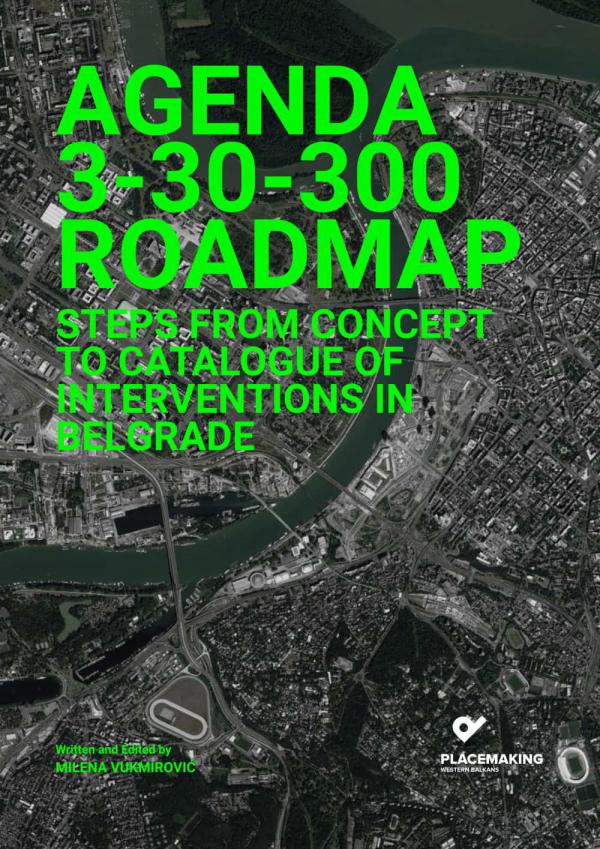Agenda 3-30-300 Roadmap
Steps from Concept to Catalogue of Interventions in Belgrade
Downloads

Synopsis
The Agenda 3-30-300 project, initiated and led by Placemaking Western Balkans (PWB) in collaboration with WWF Adria and the EU4You program, was developed to popularise and critically examine the significance of the 3-30-300 principle in the Balkans and Southeast Europe. Conceived as both a research and educational initiative, the project stands at the intersection of academic knowledge, professional practice, and civic engagement, aiming to translate a globally recognised principle into actionable local strategies.
The 3-30-300 principle, developed within the framework of the Dutch Nature-Based Solutions Institute under the leadership of Professor Cecil Konijnendijk, has gained increasing attention worldwide as a simple yet effective guideline for greening cities and improving public health. It requires every resident to have three trees visible from their window, 30% canopy cover in each neighbourhood, and a maximum distance of 300 m to the nearest green space. Multiple international studies have confirmed that access to greenery improves mental health, reduces stress, encourages physical activity, mitigates the urban heat island effect, and strengthens social cohesion. In the long term, investing in urban nature reduces public health and infrastructure costs.
In Belgrade, where grey infrastructure continues to expand at the expense of green spaces and access to quality greenery remains uneven, the adoption of the 3-30-300 principle represents a significant step towards sustainable urban development. By re-centring nature in the design and management of public spaces, the principle provides a regenerative approach to urban transformation, where shade, biodiversity, and accessibility are understood as essential infrastructure.
Within this broader mission, the Agenda 3-30-300 project has established itself as a platform for exchanges between students, academics, practitioners, and citizens. Its activities include international student workshops, expert interviews, and public exhibitions. Importantly, the International Student Workshop on the 3-30-300 Agenda was organised in connection with the International Academic Conference on Places and Technologies (PT25), providing a strong academic framework and fostering dialogue between emerging professionals and leading experts in the field.
The exhibition “Greening the Cities – The 3-30-300 Principle in Action”, hosted at the Impact Hub Belgrade, marked a significant milestone in the project. It showcased the work of international student teams who, through visual narratives, illustrated how three distinct Belgrade neighbourhoods could be transformed by applying this principle. Serving as a public translator of the project’s findings, the exhibition highlighted how small, incremental, and locally tailored interventions—tree rows, pocket parks, rain gardens, green roofs, and vertical greenery— could enhance everyday life and ecological functioning in urban areas.
By combining European perspectives, local expertise, and citizen participation, Agenda 3-30-300 positions Belgrade within the global movement for greener, healthier, and more equitable cities. The project demonstrates that a city where every child sees a tree from their window, every park is within walking distance, and every neighbourhood enjoys shade and greenery is prepared to withstand the challenges of climate change.





